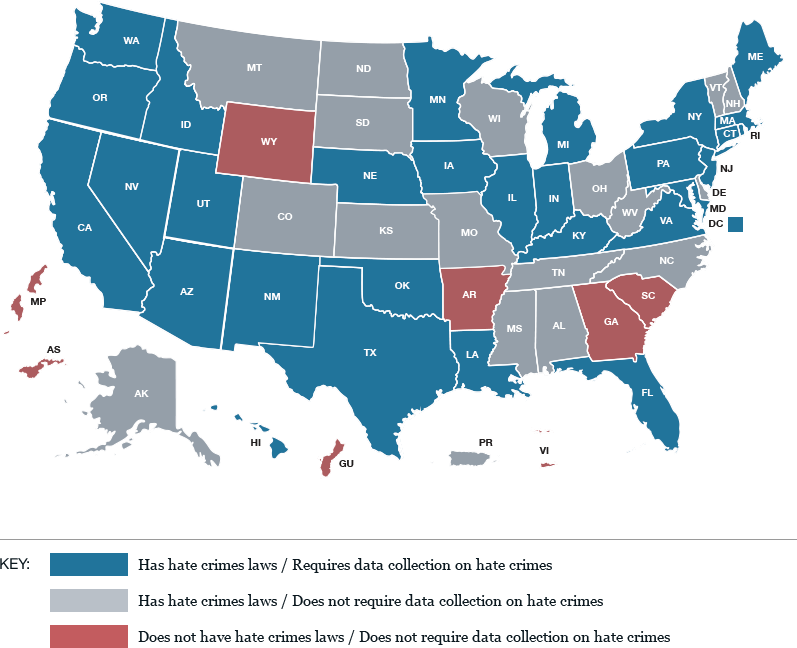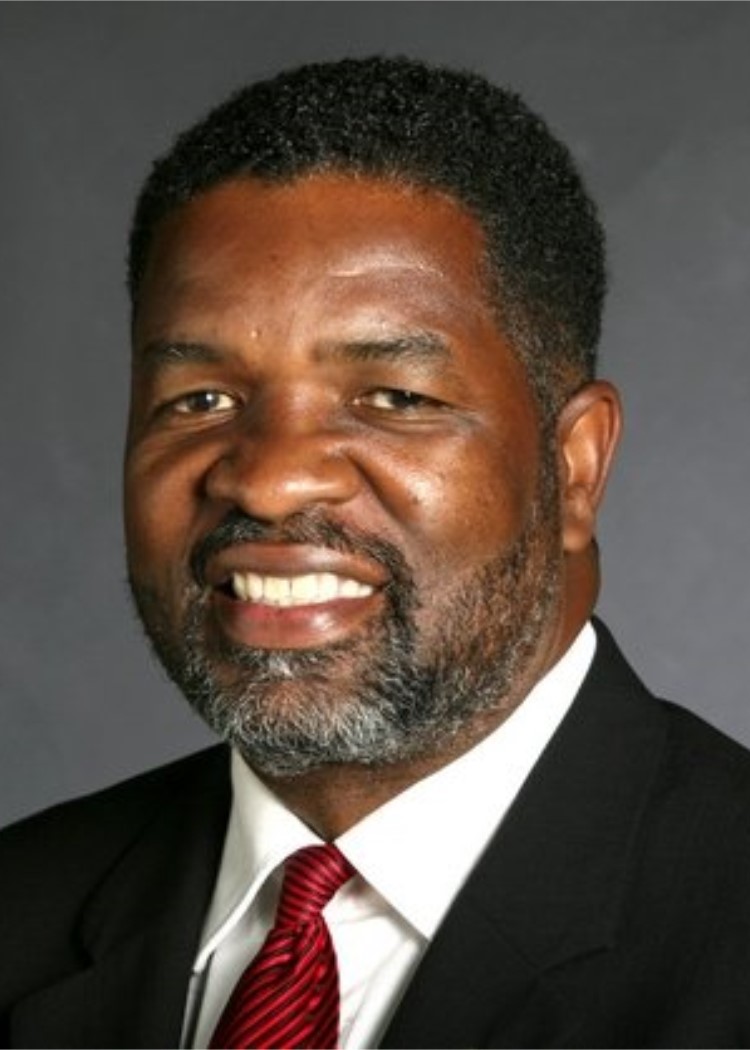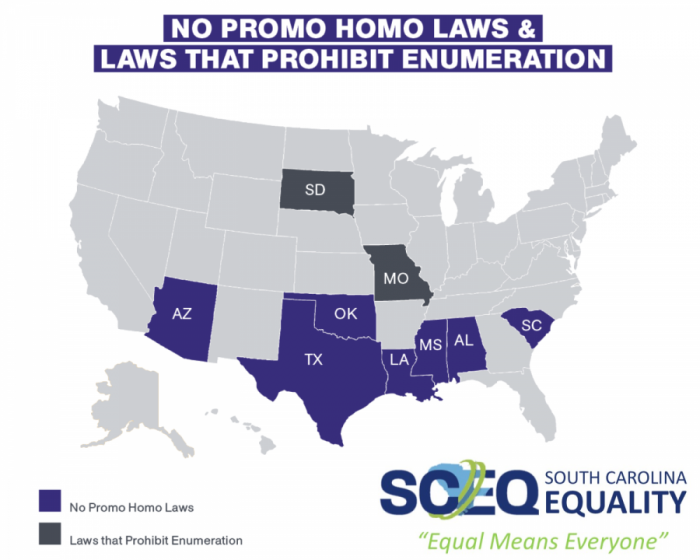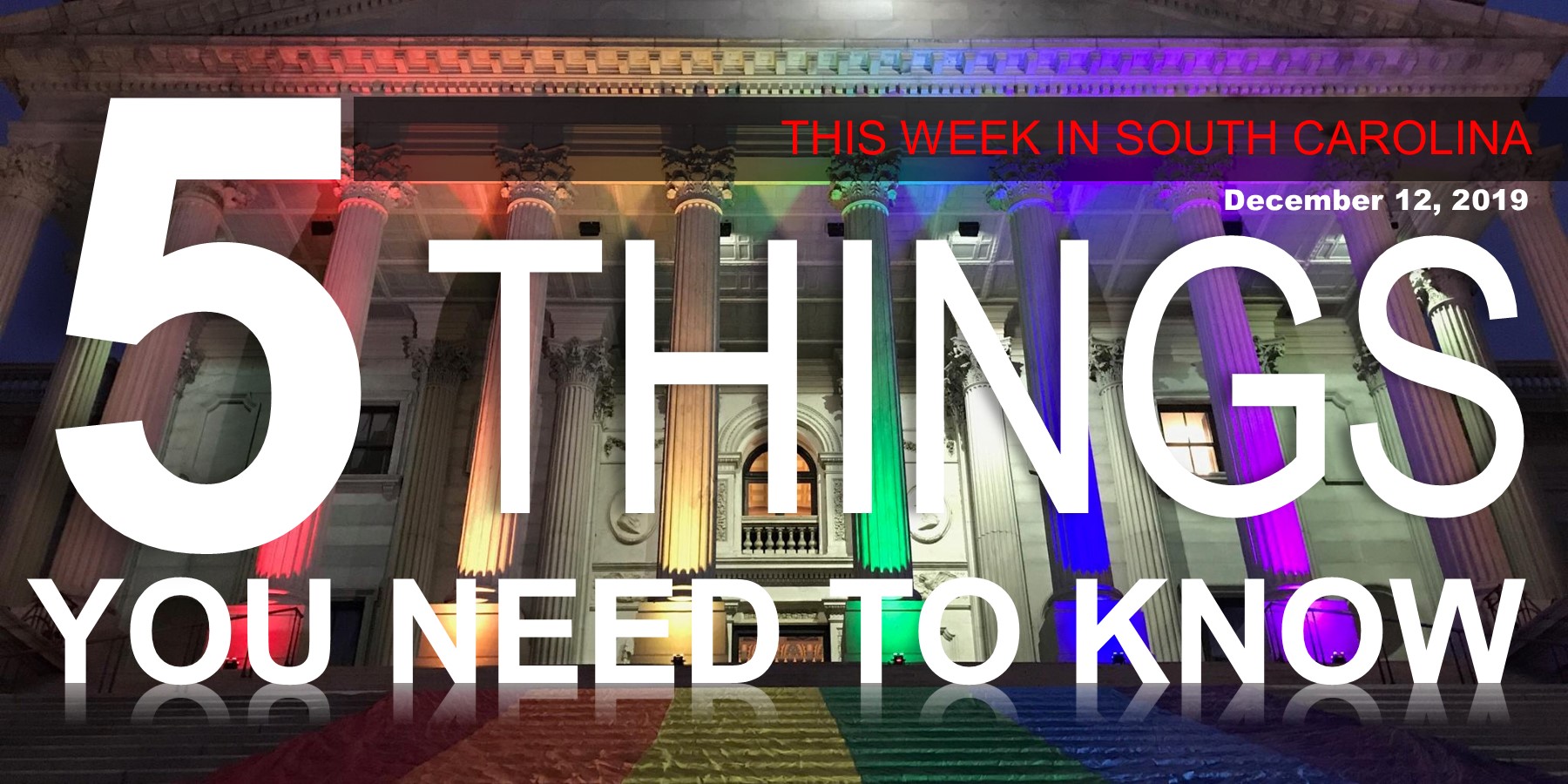Hate Crime is Real
Hate Crime is Real
South Carolina is one of four states that does not have a state hate crime law. Shameful!
LGBTQ people experience harassment and violence at high rates—likely at much higher rates than what is currently reported to the FBI or other law enforcement agencies. Hate crimes differ from conventional crimes because they are meant to incite fear and intimidation in an entire group or class of people.
The number of hate crime incidents targeting gays, lesbians, and bisexuals in the United States in 2018 increased by nearly 6 percent over the previous year and the number of anti-transgender hate crime incidents increased by 41 percent during that same period, according to the FBI’s newly released annual Hate Crime Statistics Report.
South Carolina is one of four states that does not have a state hate crime law. Bills to create a state-level law — which would increase the penalties for crimes motivated by hatred or bias — have been introduced in the past. But none has come close to passing, even after a 2015 racially motivated shooting in a Charleston church that killed nine.

2020 Legislative Tracker
2020 Legislative Action Center is where you can see the legislation introduced in South Carolina (including several hate crime bills) that will shape the future of the movement for LGBTQ equality in our state.
What motivates hate offenders?
Credit: Southern Poverty Law Center
Racial bias is the motivating factor in most hate crimes, about 60%, according to the National Institute of Justice. But other factors involving the psychology of the offender have also been the subject of research. In one study widely used by law enforcement, sociologists Jack McDevitt and Jack Levin classified hate offenders as having four main motivations: thrill-seeking, defensive, retaliatory and mission.
- “Thrill-seeking” motivates 66% of hate crimes. These offenders are simply looking for excitement; over 90% don’t know their victims.
“Defensive” hate crimes (25%) are committed by perpetrators who rationalize their attacks by identifying some sort of threat to themselves, their identities or their community. - In “retaliatory” attacks (8%), culprits are acting in response to a real or perceived hate crime either to themselves or to their country. Examples include crimes committed against Muslims after the 2015 San Bernardino terrorist attack.
- “Mission” hate crimes (1%) are committed by offenders who make a career out of hate. They often write at length about their hate and have elaborate, pre-meditated plans of attack.
What needs to be done
South Carolina should pass a comprehensive hate crime bill that includes protections for sexual orientation and gender identity.
The federal government should take a number of actions to combat hate crimes.
The Justice Department, for example, should:
- Incentivize, encourage and train state and local law enforcement agencies to more comprehensively collect and report hate crime data to the FBI.
- Collect hate crime data from every federal law enforcement agency.
- Work with law enforcement organizations to promote and increase funding for the FBI’s National Incident-Based Reporting System.
- Establish a separate working group or task force to address hate violence and bias-motivated incidents.
- Restore funding cuts to key civil rights office budgets.
- To encourage victims to report hate crimes to local law enforcement, rescind federal policies that undermine faith, trust and relationships with communities of color – such as immigrant communities – and create a strategic plan to rebuild relationships that have been harmed by them.
- Send a clear and consistent message that bias-motivated attacks are unacceptable.
- Aggressively enforce the Fair Housing Act’s civil and criminal provisions that address hate crimes.
- Promote anti-bias and anti-harassment education, hate crime prevention, and initiatives to combat bullying and cyberbullying.
Congress should:
- Provide funding for states to establish hotlines for reporting and addressing hate crimes; to support training on hate crime data collection and reporting; and to authorize effective rehabilitation services for those convicted of hate crimes.
- Provide funding, for the first time, for grants authorized under the Matthew Shepard and James Byrd Jr. Hate Crimes Prevention Act to promote federal coordination and support for hate crime investigations and prosecutions by state, local and tribal law enforcement officials.
- Provide funding for the Justice Department’s Community Relations Service to hire new professionals to help mediate, train and facilitate in communities with intergroup tensions and in the aftermath of hate crimes.






